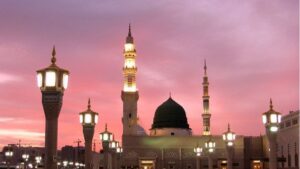A MAN’S TRUE CHARACTER IS REVEALED WHEN HE IS INVESTED WITH POWER
![]()
Whether in politics, religion, society, or any other position of authority, power has the ability to lay bare the hidden intentions of the heart.
In Islam, the responsibility that comes with power is considered a test, a trial, which can either elevate a person or ruin them, depending on how they use that position.
The Prophet Muhammad (peace and blessings be upon him) taught us that “each of you is a shepherd, and each shepherd is responsible for his flock.”
This means that power is, first and foremost, a form of leadership and accountability. Rulers, religious leaders, members of civil society, and administrators of Islamic centers or mosques are all shepherds of their respective communities.
How they treat the most vulnerable, how they handle justice, and how they remain faithful to the ethical principles of Islam is a reflection of their true character.
When power is exercised with justice, moderation, and fear of Allah, it becomes a blessing for the community and a means of spiritual growth. The Quran praises those who, even when invested with authority, act justly: “O you who believe! Be steadfast in justice, bearing witness to the truth for the sake of Allah, even if it be against yourselves, or against your parents and relatives” (Surah An-Nisa, 4:135).
Justice is the foundation of Islamic leadership and must be upheld regardless of the circumstances.
On the other hand, when power corrupts, it reveals the fragility and inner vices of those who hold it. Oppression, abuse of authority, lack of transparency, and personal favoritism are clear signs that those in power have forgotten their responsibility before Allah and human beings.
The Prophet Muhammad (peace and blessings be upon him) warned against tyranny and the abuse of power, saying, “The worst of all shepherds is the one who oppresses his flock.”
Therefore, when evaluating a man in a position of power, we must observe how he treats others, especially the weakest and most defenseless. Does he act with humility or arrogance? Does he seek the common good or only his own interests? Do he follow justice or deviate from it for convenience? These questions help us discern a leader’s true character.
May Allah grant us just leaders who fear Him above all things, and may we know how to evaluate those in positions of power not by their words but by their actions, especially when they are in control.
May power always be a means of doing good, and never a means of deviating from the truth.



